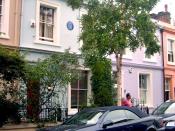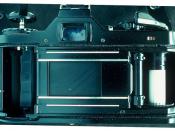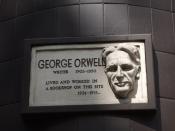Heim 1
Alex Heim
Mrs. O' Meara
Honors English 1
1 March 2007
How Cliché!
You know those phrases that you hear all the time, such as against the grain or drive me nuts? These little quips are called clichés. A cliché is a trite, stereotypical expression or sentence or phrase, usually expressing a popular or common thought or idea (As defined by Random House Dictionary). Clichés are commonly used in our lives and movies, yet are frequently called "annoying" by the literary world.
We have all heard the expression somebody got up on the wrong side of the bed, but why do we use clichés such as the latter in everyday communication? Clichés are uninspiring and sometimes even boring, but are useful for conveying a position quickly during casual conversation. In oder to get a point across concisely, we use clichés as short cuts. Although clichés are simpler to use, one should avoid using them in literary works.
According to George Orwell, "Never use a metaphor, simile, or other figure of speech which you are used to seeing in print." He is, of course referring to clichés.
Scholars around the world are denouncing the use of clichés in writing. The majority of English buffs strive to strike out particular phrases such as, glass half full/empty and awesome. These phrases tend to make writing boring and predictable. Readers will tune out and sometimes completely miss the point of the literary work.
Clichés are widely used in movies. Some of the most common cinematic clichés are a person eating take out skillfully with chopsticks, the beautiful popular girl with large breasts and the dorky girl a flat chest. Movie clichés help to get a point across clearly to the viewer; the Chinese food packaging and chopsticks helps to...



How Cliche'
Well, the title tells the story, "How cliche'"
0 out of 0 people found this comment useful.